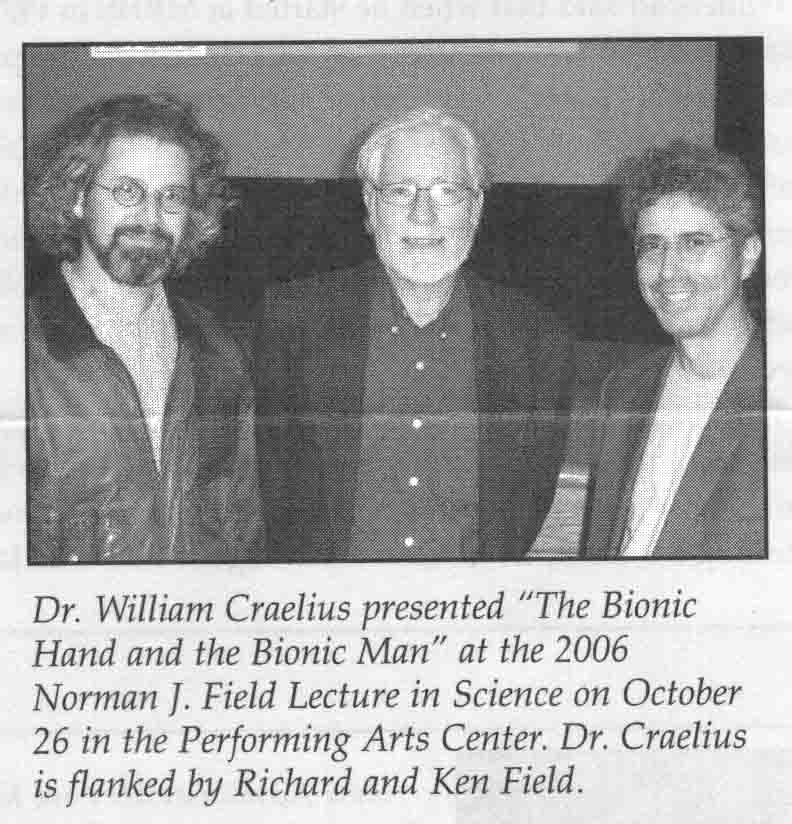(Click on the link to view article)
1992: Dr. Lawrence Krauss, Yale University
"The Beginning and End of the Universe"
October 28, 1992. News Transcript "Lecture to commemorate
former community servant"
November 8, 1992. The New York Times
"Science Lecture"
November 9, 1992. Newark Star-Ledger
"Science lecture billed in honor of physicist"
1993: Dr. Margretta Reed Seashore, Yale University
"Unraveling the Code of Life: The Genetic Revolution of the 90's"
November 2, 1993. News Transcript "Genetics lecture scheduled"
November 14, 1993. The New York Times
"Genetics lecture"
November 15, 1993. Asbury Park Press
"Individuality? It's all in the genes"
1994: Dr. Peter Dodson, University of Pennsylvania
"Dinosaurs: New Thoughts on Old Bones"
November 13, 1994. The New York Times
1995: Dr. Douglas Whitman, Illinois State University
"How Insects Conquered the World"
September 3, 1995. The New York Times
"6-Legged Warlords"
September 7, 1995. The Star-Ledger "Prof to lecture on how we co-exist with insects"
September 7, 1995. The Star-Ledger "Biologist 'bugging out' at library"
September 8, 1995. Asbury Park Press
"Studying insects"
1997: Dr. Joe Vinson, University of Scranton
"Cholesterol - Good Guy or Bad Guy?"
September 30, 1997. Asbury Park Press
"Science Lecture Set"
October 15, 1997. Asbury Park Press
"Perfecting the science of remembering"
1999: Dr. Jerry Mahlman, Princeton University
"Human-Caused Climate Warming: Implications for Practically Everything"
October 11, 1999. Asbury Park Press
"Climate warming"
October 11, 1999. Asbury Park Press
"National weather expert to speak at Monmouth"
October 16, 1999. Asbury Park Press
"Global warming nearing point of no return..."
2002: Dr. Richard Lutz, Rutgers University
"Voyage Into the Abyss: Life After Death in the Deep Sea"
September 19, 2002. Two River Times
"Deep-Sea Expert to Speak at School"
2006: Dr. William Craelius, Rutgers University
"The Bionic Hand & the Bionic Man"
